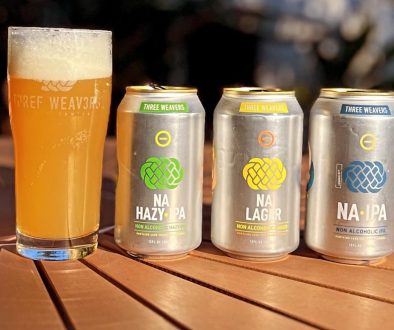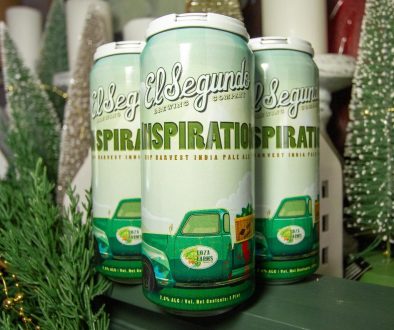North Carolina Is Famous For Craft Spirits Too
 Over the last couple decades craft beer has become deeply engrained in North Carolina’s culture. In all its uniqueness, it has attracted drinkers of all types and tastes. Even though it has had a tumultuous history in North Carolina, its history is nowhere near as involved as that of distilled liquor. “But liquor has nothing to do with craft beer!” you may say. Even as liquor is different, it is similar as well.
Over the last couple decades craft beer has become deeply engrained in North Carolina’s culture. In all its uniqueness, it has attracted drinkers of all types and tastes. Even though it has had a tumultuous history in North Carolina, its history is nowhere near as involved as that of distilled liquor. “But liquor has nothing to do with craft beer!” you may say. Even as liquor is different, it is similar as well.
What first piqued my interest and inspired me to dig a little deeper into the relationship between craft beer and liquor was this article on SeriousEats.com; reviewing a product created by Charbay, a winery and distillery in California. This product just so happened to be whiskey made from Bear Republic’s Racer 5 IPA. That got me thinking; I wonder what’s going on in North Carolina. Our liquor history involves the likes of infamous moonshine. Throughout history it has largely been illegal to make moonshine at home or out back in a barn because the government can’t regulate its sale and distribution and therefore can’t collect taxes on the final product. There have also been problems with moonshiners adding dangerous chemicals in the form of clear liquids like methanol, bleach, or lye in order to increase its apparent alcohol content. This can cause blindness, temporary or long-lasting, and potentially death.
Within the last few decades, several legal distilleries have opened their doors across the North Carolina. These companies make anything from vodka to rum, and brandy to (legal) moonshine. What all of these liquors share with craft beer is an important part of the brewing process. Both liquor and beer start with some sort of fermentable material. In beer’s case it is typically barley, but moonshine starts with corn. Liquor can also be made with anything from fruit to potatoes. Moonshine’s corn goes through a grinder to crack the kernels’ hull, and create something of a corn meal mixture. The meal/mash then goes into a kettle to boil in order to release the corn’s natural sugars. After the boil, yeast is added, and the mash is left to ferment for up to a week. The next step is where the distilling process differs from beer brewing. The fermented corn is transferred to another boil kettle, where it is once again brought to a boil. The alcohol created during fermentation is boiled off, making its way through a connecting tube to a condenser. The alcohol condenses, and the liquid runs through whatever material the distiller is using as a filter; Troy & Sons in Asheville uses a series of angled copper plates. As the alcohol runs down the plates, impurities are left behind, and the resulting liquid is pure alcohol. This process can be repeated in order to increase the alcohol’s purity. The yield after the distilling process is exponentially less than the volume of material that the distiller begins with. Because of this, liquor can be a little bit pricier than beer on the consumer’s end.
Craft distilling and craft brewing also share their pension for being unique. They both push the envelope occasionally in regards to ingredients; Fullsteam brews with persimmons, and Charbay has distilled a very hoppy IPA. Both industries pride themselves on creating great-tasting beverages, and drinkers strive to drink awesome creations. Brewers take a page from the distillers’ handbook and sometimes age their beers in used whiskey, bourbon, or scotch barrels. Craft distilling has slowly grown in North Carolina and has had more of a presence. I’ve taken the liberty of compiling a list of North Carolina liquor that can be found in our liquor stores, and in many other states’ as well.
Carolina Distillery – Based in downtown Lenoir, NC, Carolina Distillery distills single-barrel apple brandy from a family recipe, using North Carolina apples. They also produce a version of the brandy that is infused with strawberries. I haven’t had the chance to sample the strawberry version, but the apple brandy is delicious. It more or less tastes like strong apple juice.
Southern Artisan Spirits – Located in Kings Mountain in the Appalachian region of the state, Southern Artisan produces Cardinal Gin, an award winning gin that tastes great, and is awesomely smooth.
Broadslab Distillery – The piney forest area of Johnston County, NC, the town of Benson, came to be known as Broadslab. It was also the moonshine capital of Johnston County. Broadslab Distillery produces Broadslab Legacy Shine (90 proof white whiskey, a recipe passed down through five generations), Legacy Reserve (90 proof ‘shine aged in oak barrels) and Carolina Coast Spiced Rum (a molasses-based rum).
Asheville Distilling Co.– Asheville Distilling produces Troy & Sons White Whiskey. It is made using a recipe from the Appalachian area of NC, as well as a strain of white heirloom corn. This particular strain of corn was thought to be extinct, but was found to be grown only on one family farm in the mountains. The white whiskey is amazingly smooth, and tastes slightly of sweet corn.
Pidemont Distillers – Piedmont Distillers hails from Madison, NC. They produce a line of moonshine products that are created using a recipe passed down from Junior Johnson, a former NASCAR and bootleg driver. They bottle Catdaddy Spiced Moonshine, and Midnight Moon Moonshine. Midnight Moon is available as straight moonshine, as well infused with blackberry, blueberry, cherry, cranberry, strawberry, and cinnamon (apple pie flavor).
Howling Moon Distillery – Based in Asheville, NC, Howling Moon produces Howling Moon Moonshine and Apple Pie Moonshine. I haven’t seen this one in stores this far east yet.
Top Of The Hill Distillery – One of the newest distilleries in North Carolina, it calls Chapel Hill Home. Opened by the owner of one of the most profitable bars/restaurants in the area, TOPO Distillery produces a vodka, gin, and white whiskey. It began rolling them out to restaurants, bars, and liquor stores at the end of this past summer.




February 19, 2018 @ 11:49 am
Don’t forget the world’s largest solar powered Bourbon distillery is in Durham, North Carolina.
Mystic Farm and Distillery. Tours Saturdays at 2pm and 4pm. Reservations at http://www.WhatIsMystic.com